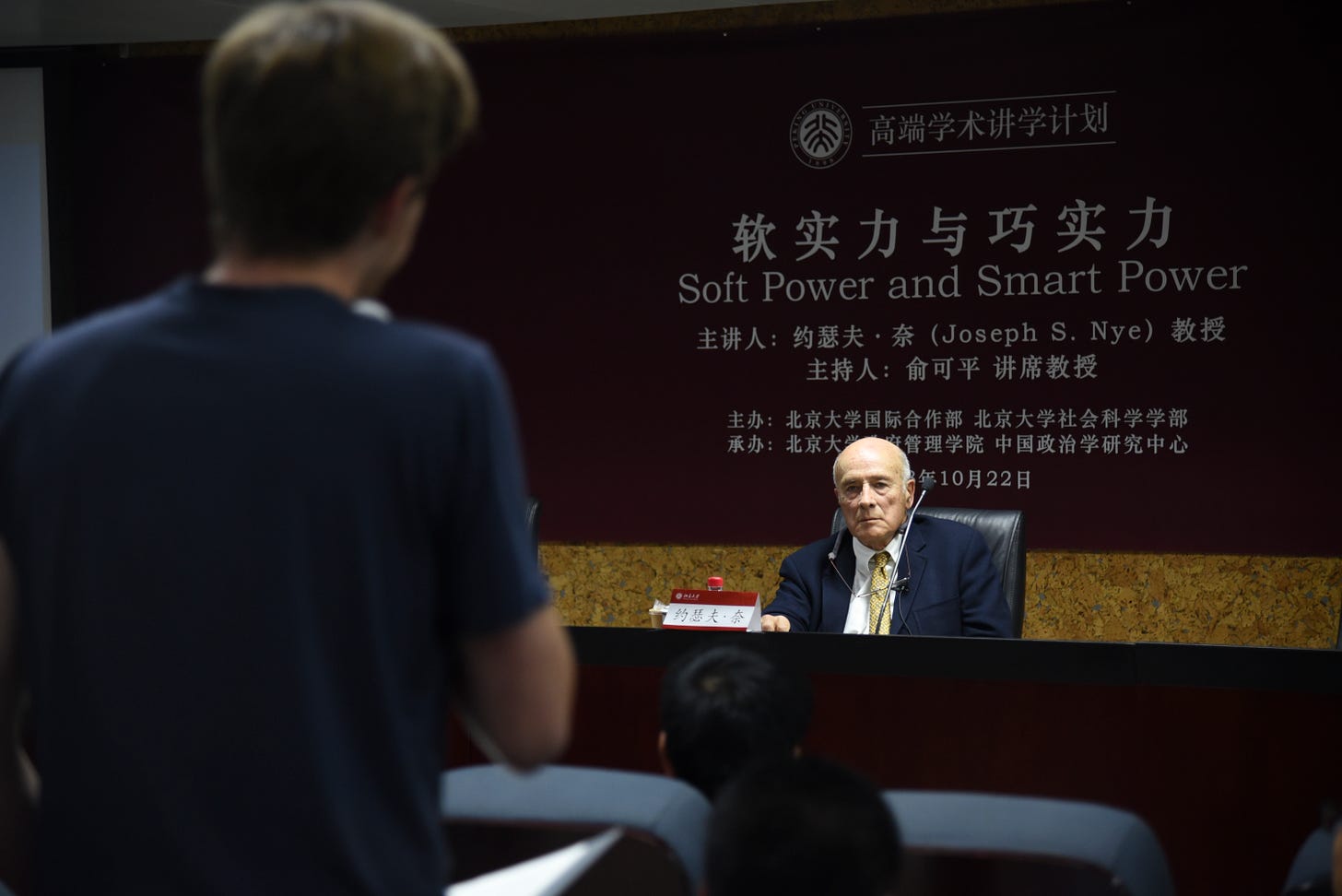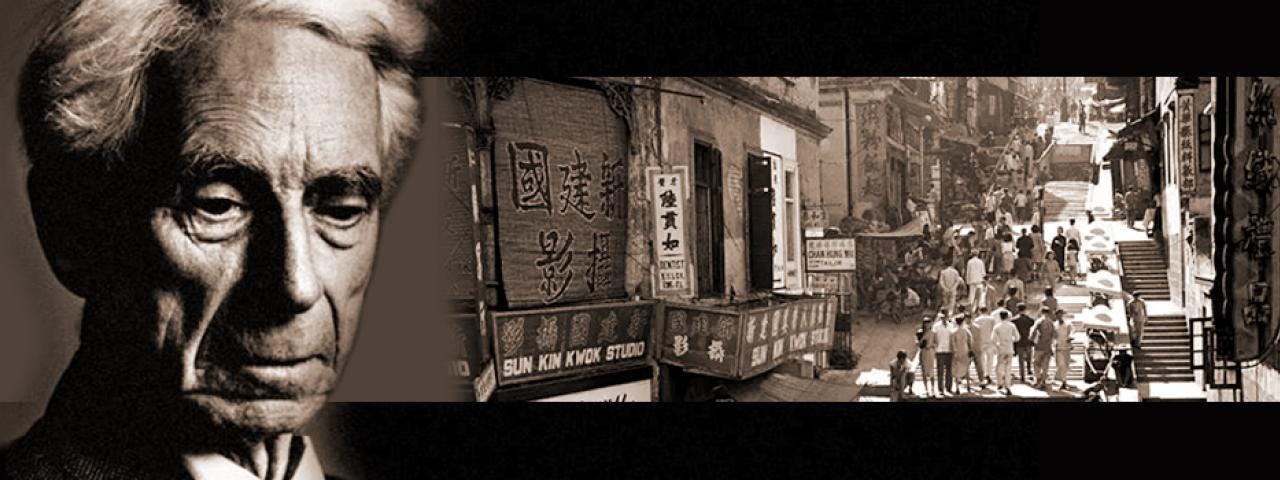Can nations transform power in the 21st century?
Reflections on The Problem of China by Bertrand Russell
On a whim, I recently read a dated book on China from an authority I did not expect to have any views on the country. That authority is the British philosopher Bertrand Russell, who was a visiting professor at PKU for a year during the beginning of the Republican era prior to the May 4th movement. The book is not at all what I was expecting. Based on the title, The Problem of China, I was expecting Russell to repeat Napoleon’s famous quip that China is in a deep slumber but when she awakens she will shake the world. That is, China has both the demographics and reverence for knowledge to modernize and even surpass the Western powers.
Russell is still very much concerned with the prospect that the sick man of Asia may rise out of bed, but reframes the nature of the problem as not one that China is imposing on the West, but a problem within Western culture. Western modernity is in many ways irresistible because of the conspicuous prosperity it creates, but this prosperity is akin to the biblical apple in that it crowds out the moral contemplation necessary to restrain capitalism’s worst excesses.
What does this general insight mean for China specifically? Russell believes that China’s century of humiliation will become too difficult to bear and that the Youth movement will be compelled to imitate the methods of the West in pursuit of wealth and power. In itself, there is nothing wrong with this pursuit. But Russell’s concern is that the self-strengthening efforts of the Youth movement will be too successful and the Chinese will lose the distinctive merit of their civilization. They will not only adopt the Western scientific method, which he views as necessary, but also the West’s tendency to pervert it, leading to a mechanistic, reductionist outlook of the world.
Russell writes that China is properly an “artist nation”, meaning it has great great civilizational insights that too few appreciate and does not get enough in return from the people who do. He openly wondered what would happen to the struggling artist nation when its national peers were committed to swindling its wealth, “Can Chinese virtues be preserved? Or must China, in order to survive, acquire the vices which for [military and commercial] success and cause misery to others only.” A far better way to advert the problem of “adding one more restless, industrial, and militaristic country that afflict this planet” would be to avoid giving China this ultimatum altogether, Russell advises. The West must finally reject imperialist dogma that reifies “the predatory relations of the strong toward the weak.” Remarkably, this notion had not changed substantially since antiquity, noting that the Spartans showed no remorse for the subjected population they forced into slavery, who claimed that the weak simply suffer what they must.
What Russell is implying through this framing is that the solution to the China problem is not China emulating the West, but the West becoming more like China. Joseph Nye mentioned the above reference to the Peloponnesian Wars to note that the principle of power is still the way the world is organized in the 21st century. I immediately connected the three modes of power—military, economic, and attractive—to the evolutionary transition President Carter referenced as the problem that confronts humanity in the 21st century. If the community of nations is to succeed, we must collectively reject coercive, military, and economic power in favor of the attractive power Nye has been preaching about for almost three decades.

That endeavor would entail rejecting Nietzschean values of possession, self-assertion, and dominance that Russell held in such contempt and rely on their civilized analogues. In Russell’s view, the Daoist philosopher, Laozi, most succinctly outlined the alternative the anarchic international order, “Production without possession, action without self-assertion, and development without domination, that is the way of the dao.” Each nation must be allowed to complete Carter’s evolutionary transition between animalistic man who sought to dominate others and the higher being of man who cooperates on issues that threaten his existence.
The danger of staying somewhere along these points of the outstretched rope is not that it is somehow worse than the grotesque brutality of antiquity highlighted by Nye and Russell. The simple fact is that this balancing act leaves all of us vulnerable to unexpected events. Most of the time we may be fine balancing these two extremes, but every once in a while a revanchist leader may come along who adheres to the Nietzchean principles mentioned earlier and sends the entire world spiraling into the abyss. To ensure that the liberal dreams of Nye and Russell are not jeopardized, the post-war international architecture must at some point evolve to eliminate traces of coercive power that have so stubbornly persisted since antiquity.
Such a project may run as counter to human nature as Laozi’s implication that there are clear lines between production/possession, action/self-assertion, and development/domination. The complexities of the human predicament notwithstanding, Laozi’s general principle contains the great hope for humanity to exist together on our planet for the foreseeable future. I want nothing to do with the precarious balancing act between our coercive past and cooperative future, because the instinctive allure of coercion may prevent the possibility of a future.




